Most recently published

Post-Hazard Event Airport Recovery
Jaskanwal P. S. Chhabra, Greg Brunelle, Youngsuk Kim, Junichi Sakai and Deepak Pant
May 12, 2021
The role airports play in the world is critical. Even a minor disruption to their operations has immediate cascading impacts, which can be familiar to anyone who has experienced a delayed departure and the dreaded “Will I make my connection?” stress that follows. However, airport disruptions create far greater economic
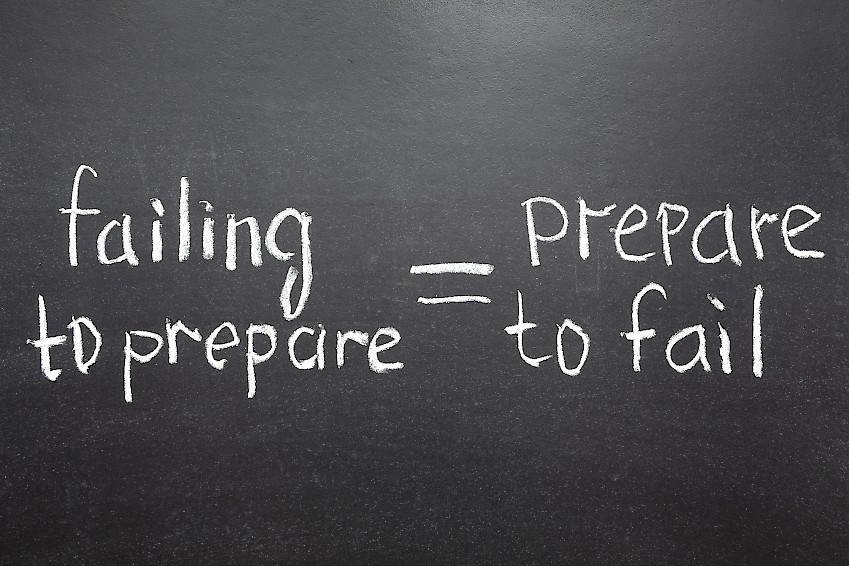
National Preparedness Failure: Hindsight Is 2020
Michael A. Brown
May 5, 2021
In February 2021, the Congressional Research Service released an evaluative nonpartisan report on the National Preparedness System (NPS). This report noted problems and difficulties experienced in 2020 during the Coronavirus SARS-CoV-2 (COVID-19) pandemic. For example, lack of personal protective equipment, disorganized logistical distribution, and other issues that demand attention. In
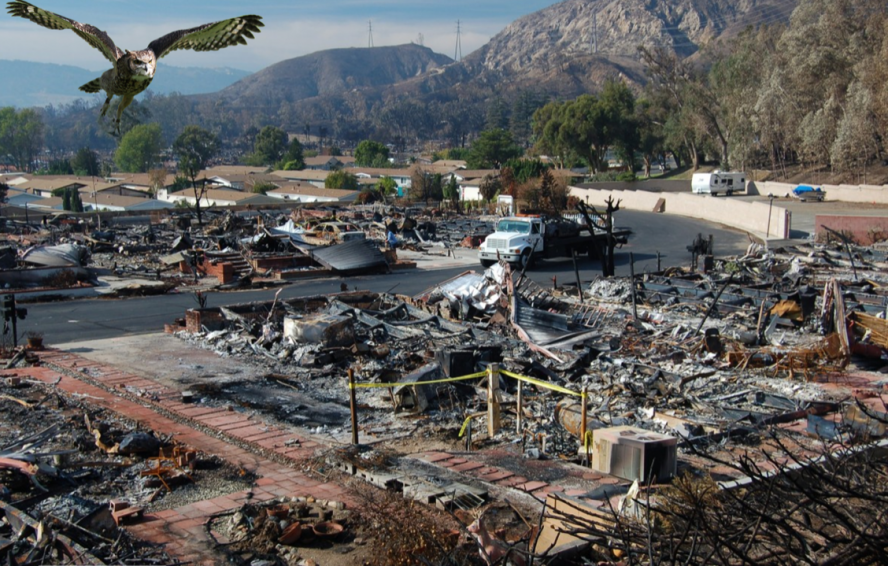
Formalizing the Role of Intelligence & Investigation
Michael Prasad
April 28, 2021
Emergency managers need actionable intelligence before, during, and after disasters. More than just situational awareness, the collection, analysis, and sharing of intelligence can provide an incident’s response and recovery command and general staff with much needed decision-making information.
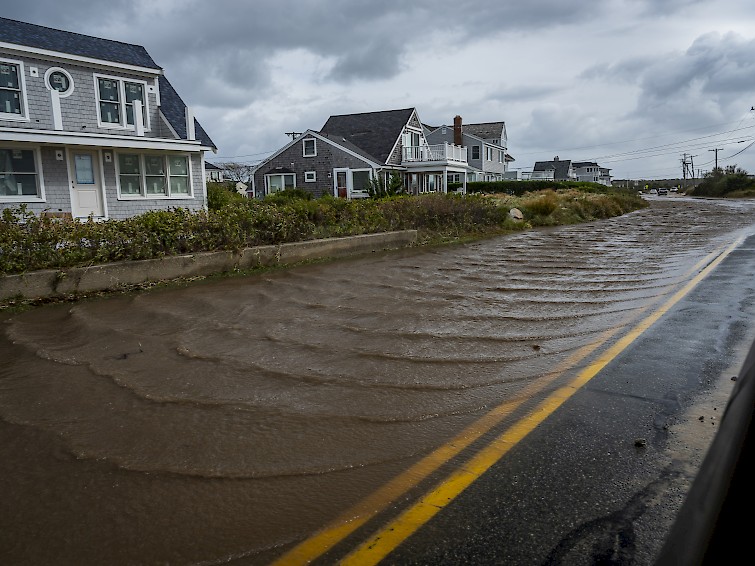
Coastlines Are Now a Moving Target – Literally
John Englander
April 21, 2021
In March 2021, a Cape Cod weather station in Chatham, Massachusetts was abandoned due to coastal erosion. With much media coverage, some of the articles mentioned that the situation is likely to worsen. The fact that they associated the erosion with climate change and that it was a weather station
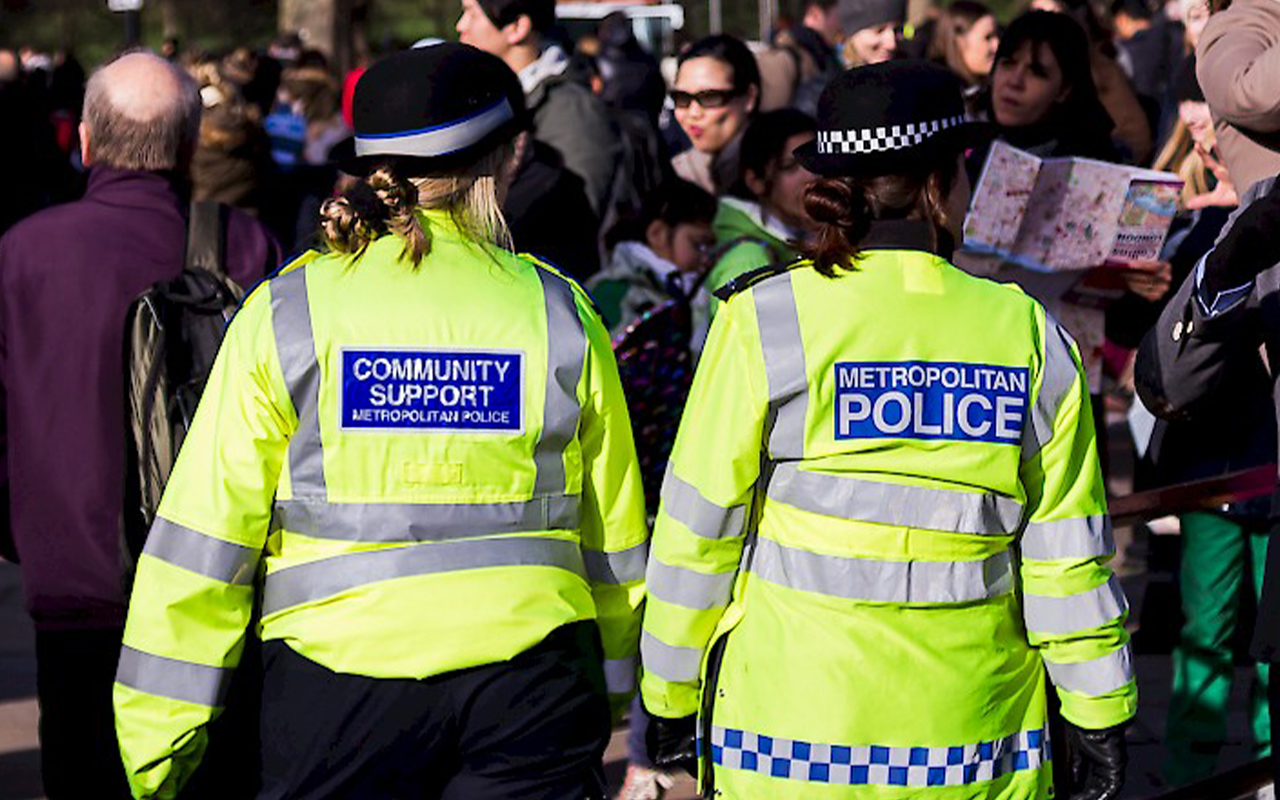
Public Order Policing & Volunteers
Erik Westgard
April 14, 2021
Two days into the May 2020 George Floyd riots in Minneapolis/St. Paul, Minnesota, hundreds (on the way to ~1,500) of properties were burning, with smoke visible on the horizon. Top leaders appeared on television stating that law and order were breaking down and urging calm within the community. Based on

Supply Chain Management During a Pandemic
Greg Burel, Bobby Baker Jr. and Wayne Williams
April 7, 2021
Three experts present their insights and experiences on managing a supply chain during a pandemic. Areas to be discussed: TECHNOLOGY: How does technology enhance or complicate resilience and the supply chain? RELATIONSHIPS: How have relationships with customers and suppliers changed during the the pandemic? COLLABORATION: How does federal, state, local,

Understand the Terrorist, Preempt the Threat
Laura Ehrmantraut
April 7, 2021
It is important to understand why people do the things they do when trying to figure out an individual’s motives and reasons. It is even more captivating when it involves an individual doing unspeakable actions toward another, such as murder or abuse. When it comes to terrorism, there are many

Embracing Resilience: At a Crossroad of Opportunity
Greg Brunelle and Deborah Weiser
March 31, 2021
March 2021 marked the 10th anniversary of the Great East Japan (Tohoku) Earthquake. On the afternoon of 11 March 2011, a magnitude 9.1 megathrust earthquake struck where the Pacific Plate subducts underneath the Honshu region of Japan. This was a massive event. The earthquake rupture lasted 150-160 seconds, with shaking
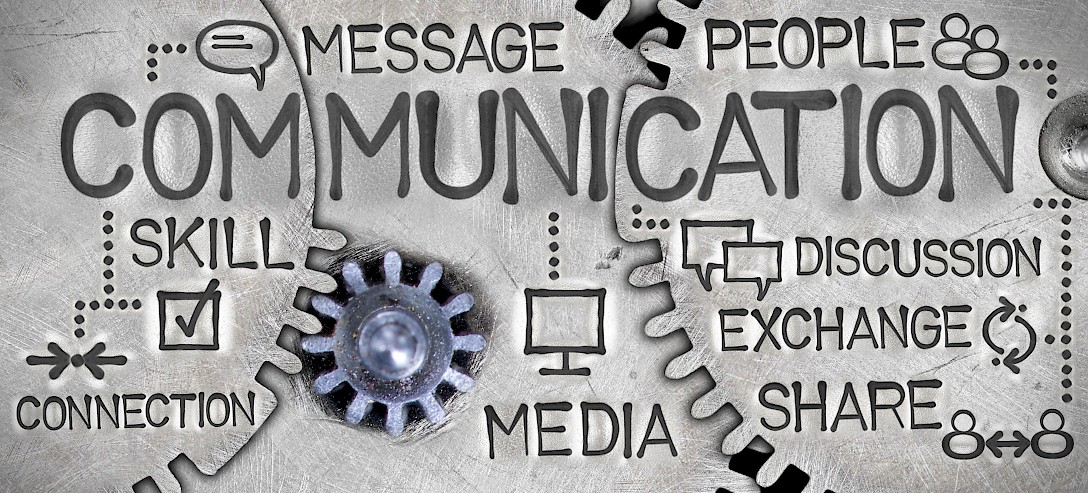
The New World of Interoperability Communications
Charles J. Guddemi
March 17, 2021
Four years ago, during the 2017 Inauguration, the country and the world existed in a very different reality than they do today. Today, a “new world” exists within a global pandemic and among First Amendment activities and protests. The 2021 Inauguration was unique for these reasons but also presented challenges
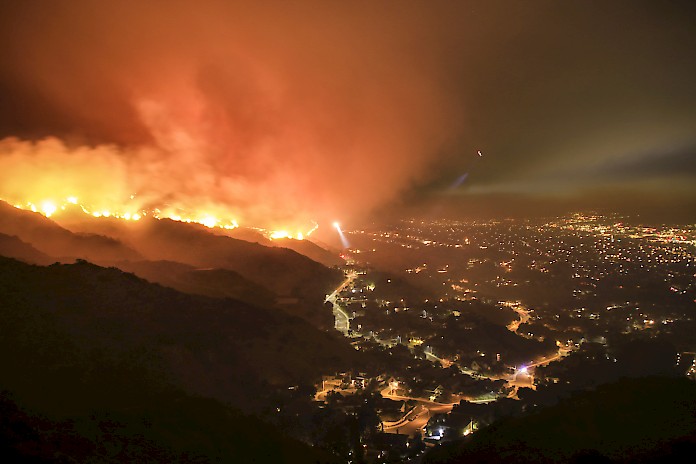
Mitigating Wildfires – Conceptualizing Possibilities
Senay Ozbay
March 10, 2021
Mitigating wildfires is not only essential for protecting life, property, and critical infrastructure. It also is essential for controlling changes within the climate, which ultimately causes disasters around the world. National Fire Protection Agency (NFPA) estimates that wildfires now cost between $63 and $285 billion a year. According to data

Technical Assistance for Healthcare System Preparedness
Audrey Mazurek and John Hick
March 3, 2021
The mission of the U.S.Department of Health and Human Services (HHS) Office of the Assistant Secretary for Preparedness and Response (ASPR) is to save lives and protect Americans from 21st century health security threats by leading the nation’s medical and public health preparedness for, response to, and recovery from disasters

Building a Holistic Homeland Security Enterprise System
Daniel Rector
February 17, 2021
In the United States, a diverse group of agencies and organizations work together to accomplish the homeland security mission. Many of these organizations fall within the Department of Homeland Security (DHS). Organizations that are not directly a part of DHS act as partners and provide support in various ways. One

Revisiting Face Masks Near the End of a Long Journey
David Mayfield
May 19, 2021
On 11 March 2021, the world reached a dubious milestone – one year since the World Health Organization (WHO) first declared COVID-19 a global pandemic. Soon after that declaration, a large portion of the world shut down. In the 12 months that followed, community stakeholders have become relatively well-versed in

Post-Hazard Event Airport Recovery
Jaskanwal P. S. Chhabra, Greg Brunelle, Youngsuk Kim, Junichi Sakai and Deepak Pant
May 12, 2021
The role airports play in the world is critical. Even a minor disruption to their operations has immediate cascading impacts, which can be familiar to anyone who has experienced a delayed departure and the dreaded “Will I make my connection?” stress that follows. However, airport disruptions create far greater economic

National Preparedness Failure: Hindsight Is 2020
Michael A. Brown
May 5, 2021
In February 2021, the Congressional Research Service released an evaluative nonpartisan report on the National Preparedness System (NPS). This report noted problems and difficulties experienced in 2020 during the Coronavirus SARS-CoV-2 (COVID-19) pandemic. For example, lack of personal protective equipment, disorganized logistical distribution, and other issues that demand attention. In

Formalizing the Role of Intelligence & Investigation
Michael Prasad
April 28, 2021
Emergency managers need actionable intelligence before, during, and after disasters. More than just situational awareness, the collection, analysis, and sharing of intelligence can provide an incident’s response and recovery command and general staff with much needed decision-making information.

Coastlines Are Now a Moving Target – Literally
John Englander
April 21, 2021
In March 2021, a Cape Cod weather station in Chatham, Massachusetts was abandoned due to coastal erosion. With much media coverage, some of the articles mentioned that the situation is likely to worsen. The fact that they associated the erosion with climate change and that it was a weather station

Public Order Policing & Volunteers
Erik Westgard
April 14, 2021
Two days into the May 2020 George Floyd riots in Minneapolis/St. Paul, Minnesota, hundreds (on the way to ~1,500) of properties were burning, with smoke visible on the horizon. Top leaders appeared on television stating that law and order were breaking down and urging calm within the community. Based on

Supply Chain Management During a Pandemic
Greg Burel, Bobby Baker Jr. and Wayne Williams
April 7, 2021
Three experts present their insights and experiences on managing a supply chain during a pandemic. Areas to be discussed: TECHNOLOGY: How does technology enhance or complicate resilience and the supply chain? RELATIONSHIPS: How have relationships with customers and suppliers changed during the the pandemic? COLLABORATION: How does federal, state, local,

Understand the Terrorist, Preempt the Threat
Laura Ehrmantraut
April 7, 2021
It is important to understand why people do the things they do when trying to figure out an individual’s motives and reasons. It is even more captivating when it involves an individual doing unspeakable actions toward another, such as murder or abuse. When it comes to terrorism, there are many

Embracing Resilience: At a Crossroad of Opportunity
Greg Brunelle and Deborah Weiser
March 31, 2021
March 2021 marked the 10th anniversary of the Great East Japan (Tohoku) Earthquake. On the afternoon of 11 March 2011, a magnitude 9.1 megathrust earthquake struck where the Pacific Plate subducts underneath the Honshu region of Japan. This was a massive event. The earthquake rupture lasted 150-160 seconds, with shaking

The New World of Interoperability Communications
Charles J. Guddemi
March 17, 2021
Four years ago, during the 2017 Inauguration, the country and the world existed in a very different reality than they do today. Today, a “new world” exists within a global pandemic and among First Amendment activities and protests. The 2021 Inauguration was unique for these reasons but also presented challenges

Mitigating Wildfires – Conceptualizing Possibilities
Senay Ozbay
March 10, 2021
Mitigating wildfires is not only essential for protecting life, property, and critical infrastructure. It also is essential for controlling changes within the climate, which ultimately causes disasters around the world. National Fire Protection Agency (NFPA) estimates that wildfires now cost between $63 and $285 billion a year. According to data

Technical Assistance for Healthcare System Preparedness
Audrey Mazurek and John Hick
March 3, 2021
The mission of the U.S.Department of Health and Human Services (HHS) Office of the Assistant Secretary for Preparedness and Response (ASPR) is to save lives and protect Americans from 21st century health security threats by leading the nation’s medical and public health preparedness for, response to, and recovery from disasters
Moving on From 2020 – A Future for Emergency Management
Kyle R. Overly
February 3, 2021
The events that unfolded over the course of 2020 and 2021 challenged emergency managers in ways only previously imagined. In the midst of a global pandemic, emergency managers worked through the complexities of a global response while delivering core administrative functions and coordinating the response to countless other threats and
An Analysis of Presidential Accretive Power – Part 3
William H. Austin
January 27, 2021
The events that unfolded over the course of 2020 and 2021 challenged emergency managers in ways only previously imagined. In the midst of a global pandemic, emergency managers worked through the complexities of a global response while delivering core administrative functions and coordinating the response to countless other threats and
An Analysis of Presidential Accretive Power – Part 2
William H. Austin
January 20, 2021
The intersection between populism and progressivism is often contentious and reserved. At least, that is how it has been for the last century or so. To quote Robert Kennedy, “Democracy is messy, and it’s hard. It’s never easy.” Following the analysis on the founding and history of presidential power, this
An Analysis of Presidential Accretive Power – Part 1
William H. Austin
January 13, 2021
The following analysis is a three-part article that will cover a brief history, known examples of the exercise of presidential power, and illustrative examples of actions that historians believed were controversial. This analysis helps unwind the evolution of power in what some believe to be the most powerful leader in
COVID-19 & Lack of Reconnaissance
Christopher Tantlinger
January 6, 2021
The word “reconnaissance” conjures the image of sizing up the enemy and making a plan. Behind medieval history and WWII films about military battles across seas and foreign lands, military forces and commands strategized the battle with efforts revolving around reconnaissance. For many of those who diligently formulate and coordinate
Crisis Leadership: Leading Through Turmoil
Ronald L. Rowe, Jr.
December 16, 2020
The year 2020 has certainly had an abundance of turmoil and uncertainty: a global pandemic, a roller coaster economy, a national awakening to racial injustice, and a contested presidential election. All leaders have the required skills to manage in times of calmness. However, in times of turmoil and uncertainty, the
Think Recovery, Not Just Re-Entry, for Post-Pandemic Future
Ann Lesperance and Grant Tietje
December 2, 2020
Ten years ago, a team of representatives from King and Pierce counties, cities of Seattle and Bellevue, Joint Base Lewis McChord, and Pacific Northwest National Laboratory set forth on developing the Regional Recovery Framework for a Biological Attack in the Seattle Urban Area. A collaboration of the Seattle Urban Area
Tips to Prevent Cyberattacks While Working Remotely
Tashawn Brown
November 25, 2020
October was National Cybersecurity Awareness Month. Throughout the month, New York City (NYC) Emergency Management agency shared information to help community members take steps to safeguard their personal information. As the frequency and complexity of cyberthreats continue to increase, it is more important than ever to stay vigilant online. This
The New Age of Police Reform – Part 4
Joseph W. Trindal
November 25, 2020
It is yet to be determined if the intense calls for police reform and social justice are principally fueled by a contentious presidential election year or if the momentum behind public pressure for change will withstand political uncertainty. Building public pressure for police reform has transcended the political parties in
Building a Data-Driven Culture in Emergency Management
Patrick Campion
November 18, 2020
Emergency management and public safety agencies are increasingly using data analysis and visualization tools (e.g., Tableau, Microsoft PowerBI, ArcGIS, Google Data Studio) to inform their decision-making and help manage disasters in a multi-threat/hazard environment. In response to the global COVID-19 pandemic, federal, state, and local government agencies rapidly expanded the
The New Age of Police Reform – Part 3
Joseph W. Trindal
November 11, 2020
Accountability and transparency are prominent features of modern police reform. Yet, the concepts and structures for holding police accountable trace back to the origins of modern democratic police service in London, UK. A key motivation for creating public police service was the lack of accountability afforded by private police services
Preparatory Consequence Management & Weapons of Mass Destruction
Scott J. Glick
November 4, 2020
The U.S. Department of Homeland Security has stated that the United States faces a rising danger from terrorists and rogue states seeking to use weapons of mass destruction (WMD). If the government learned that a terrorist intended to use a WMD in a major metropolitan U.S. city, senior government officials
Follow Us
Get Instant Access
Subscribe today to Domestic Preparedness and get real-world insights for safer communities.


